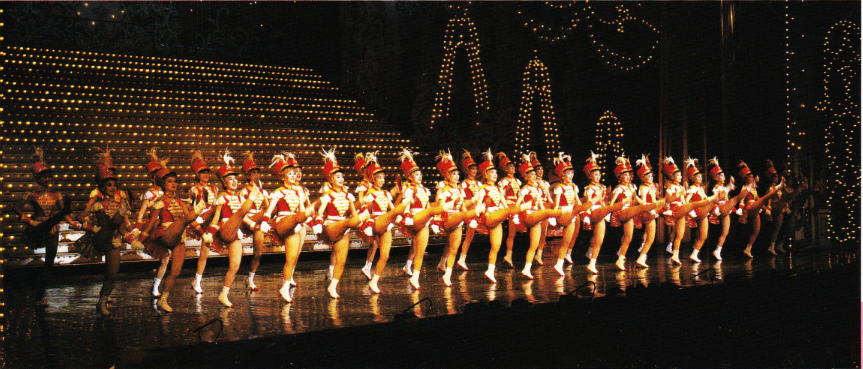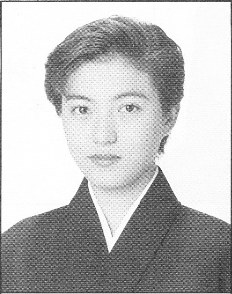This book is a memoir of Aran Kei’s time as a member of Takarazuka, as well as her post-Takarazuka career and memories of her childhood. It was published in 2010 to commemorate the 20th year of her stage career. It also features messages from Takarazuka classmates and other colleagues and theatre artists she has worked with.
“Growing my own way” as a junior actress
I think that while I was in the Music School, I didn’t feel any sense of rivalry towards my classmates. There were lots of girls who were better than me at ballet or singing. Although I of course didn’t like the feeling of losing, I saw my classmates as ‘comrades’ that I was going to fight alongside, rather than opponents to fight against. When I got tendonitis from practicing piano, which I was bad at, I made a huge show of wearing a bandage and skipped my lessons. When I overslept and ended up late for the cleaning period, which you absolutely weren’t allowed to be tardy for, I was able to get out of that scrape, thanks to a phone call from one of my classmates and putting on an innocent face for the Upper Students. My classmates watched me mess up in all kinds of ways (laughs).

There were all kinds of unique rules in the Music School. When writing reports, you had to make sure your ball pen didn’t make any ink blots, and fill the paper with characters that were all the same size, so girls who were bad at handwriting would struggle a lot. Once I tried to write for other people without it being distinguishable, but that was discovered and I got in trouble. But, starting with our year, the rules were actually relaxed quite a bit, and because of that, when we entered the company we were seen as some sort of ‘new generation’. If the line dance we performed in our debut show was messy, people would say “It’s because this year’s class had no rules.”

After graduating from the Music School at the top of the class, I performed in troupe rotations (at the time, new performers would appear with many troupes for about 1 year) before being assigned to Snow Troupe. As I went through the troupes before being assigned, I remember being scared of Moon Troupe.

At the time, if you made a mistake on stage in a Moon Troupe show, the way you had to apologize was by making a memorized speech, and you couldn’t make a single error in any word or syllable. I thought that surely, if I was apologizing sincerely, it would be alright if I made a tiny error, but this didn’t go over at all. Furthermore, since I had entered the company as the top of the class it would all come down on me. I would be scared of what would happen after the end of the performance, so I wouldn’t be able to perform peacefully onstage. Compared to that, Snow Troupe was a very gentle troupe.
My first time receiving a significant role with lines was in the Snow Troupe Grand Theatre performance of The 47 Ronin [1992-1993].

I played one of the ronin who would come running in from the side stage saying “I have a report!” and bring information for the character above me, but maybe because I was so nervous, my voice would break. The senior actresses playing the person I reported to would tell me every time “You’re going to make me laugh, so cut it out!’
I also studied doing makeup intensely, in my own way. When I played a young African-American man who was fighting for civil rights together with Reverend King in JFK, I wanted to go for as realistic a look as possible, so I wore a wig like something you’d see on a Buddha statue. Instead of an afro style, it was more like a punch perm. I didn’t feel like I needed to look attractive, but of course everyone around me said: “Are you really doing that?” (laughs).
Looking back now, I think I was a really brazen junior actress. I didn’t know anything about how intimidating it is to perform onstage, and I would merrily keep doing things that could disrupt the core of the drama. It was so fun discussing “Today let’s say that this is true about this character” with my classmates and then going on stage. The Troupe Elder1 realized there were people in the audience watching us acting and snickering at us, so she called us in to scold us, but we felt ‘why is it wrong if the audience is happy and we’re having fun’? and couldn’t understand why we were being criticized. But as my position has become higher, I’ve come to realize what the senior actresses were talking about.
My comrades from the 77th class were always with me, through painful things and through the fun times. Even if I haven’t seen them in a while, we can get back to how things used to be right away, and to me they’re not just friends; our bonds make us more like family. I was the last person from our class to be appointed Top Star. Also, I was the last one of us to remain in the company. On the final day of rehearsals in my career, 20 members of my class (out of 40) came from all over Japan to Takarazuka, where the rehearsals were taking place. I’ll never forget that time in all my life.
1 – Japanese term ‘Kumichou’, generally the most senior member of the troupe, who is in a position of responsibility towards the younger actresses. At the time of the events in this chapter, the Troupe Elder of Snow Troupe was Kyou Misa (now a Senka member).
